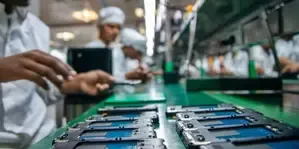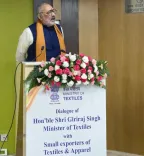Reduction in Duties on Mobile Components to Propel India’s Electronics Ambitions: Industry Association

New Delhi, Jan 2 (NationPress) The decrease in duties on mobile parts and components in the Union Budget 2025-26 is poised to further solidify India’s role as a global electronics manufacturing center in pursuit of the $500 billion electronics industry target, as stated by the India Cellular and Electronics Association (ICEA).
In correspondence with Sanjay Malhotra, Revenue Secretary at the Ministry of Finance, the prominent industry organization urged that the current 2.5 percent duty on parts and inputs such as PCBA, FPCs, camera modules, and connectors be reduced to zero percent. They emphasized that the high tariffs on sub-assemblies and their components lead to inflated manufacturing expenses.
FPCBAs are presently classified as PCBAs, although their function is akin to that of connectors. The ICEA proposed that FPCAs receive a new HSN Code with a 10 percent duty.
“The existing 2.5 percent tariff on inputs undermines competitiveness and hampers local production due to insufficient differential duty. We suggest eliminating the duty on sub-assembly inputs for open cells to zero percent to foster domestic television production,” the ICEA letter stated.
The 15 percent duty on automotive displays and similar charges on components like Blu, Cover glass, Open Cell, and others complicate the duty structure and diminish cost efficiency.
“Manufacturing displays is uniform across segments; thus, to promote and scale display assembly manufacturing in India, all inputs for Display Assembly, irrespective of end use, should be subject to zero duty, aligning with the duty structure for mobile phone displays,” recommended the ICEA.
To bolster the emerging domestic market for hearable devices, it is crucial to uphold the current duty structure while ensuring that components and inputs remain duty-free. They noted that the convoluted duty structures on parts, sub-parts, and inputs for the Inductor Coil module escalate costs and complicate customs procedures, resulting in delays.









